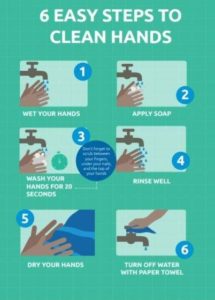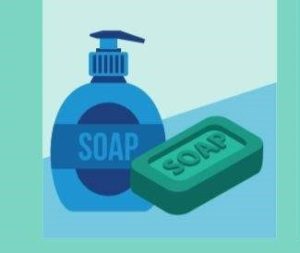WHAT IS CORONAVIRUS 2019
*Fever (100.4 F/ 37.8 C or higher)
*Cough
*Shortness of breath
Most people with COVID-19 will have a mild illness, but some people will get sicker and may need to be hospitalized. If you are an older adult, are pregnant, or are have chronic health conditions, contact your physician’s office so that they can monitor your health more closely or test you for COVID-19.
If you have a fever, cough or shortness of breath, and you suspect you might have been exposed to COVID-19, you should:
*Call your healthcare provider and they can help you decide if you need to be evaluated in person.
*If you believe this is a medical emergency, call 911 and notify the dispatch personnel that you may have been exposed to COVID-19.
What should I do if I have been in close contact with someone with COVID-19 but I am not sick?
*You should monitor your health for fever, cough and shortness of breath for 14 days from your last close contact with the person who has COVID-19.
*You should not go to work or school, and should avoid public places for 14 days.
– Click and drag to the left –






Wash your hands often with soap and water for at least 20 seconds. Use an alcohol-based hand sanitizer that contains at least 60% alcohol if soap and water are not available.
Avoid touching your eyes, nose, and mouth with unwashed hands.
Avoid close contact with people who are sick. This generally means staying six feet (or two meters) away from each other.
Again: STAY HOME IF YOU ARE SICK.
Clean and disinfect frequently touched objects and surfaces using a regular household cleaning spray or wipe.
Cover your cough or sneeze with a tissue, then throw the tissue in the trash.
Click Here to listen/watch a video reviewing how the coronavirus spreads and how you can protect yourself.
Proper Handwashing Techniques
With the outbreak of the coronavirus, Special Olympics wants you to stay safe. Washing your hands properly is just one way to help do that.
Click Here to watch Nyasha Derere, a Health Messenger from Special Olympics Zimbabwe, shares these video tips on proper hand washing techniques.
More Information on Handwashing
Regularly washing your hands with soap and water can protect you from illness caused by viruses and bacteria.
It is the best way to stop germs from spreading.

- Step 1: Wet your hands under running water.
- Step 2: Apply Soap to your wet hands.
- Step 3: Wash your hands for 20seconds (don’t forget to scrub between your fingers, under your nails, and the tops of your hands).
- Step 4: Rinse your hands well under water.
- Step 5: Dry your hands.
- Step 6. Turn the water off with your paper towel.

- After using toilet
- Before preparing, touching, or eating food
- After playing with animals
- After your sports practice
- After Caughing, sneezing, or blowing your nose
our list
At this time, if your sports practices or fitness classes are cancelled, you can still do things to help you stay healthy. Fit 5 can be a great tool to help you focus on physical activity, nutrition, and hydration.
Fit 5 reminds us to exercise 5 days a week, eat 5 fruits/vegetables per day, and drink 5 bottles of water per day.
Below are some resources you can use to stay fit even if sports practices or fitness classes are cancelled.



